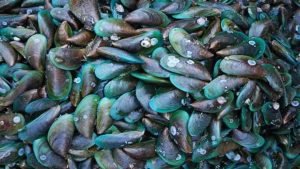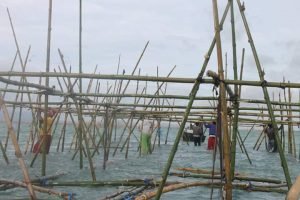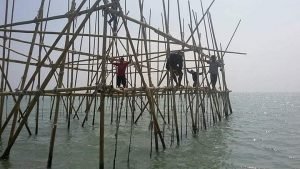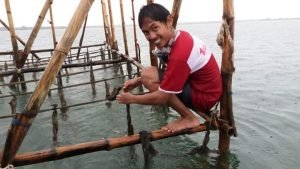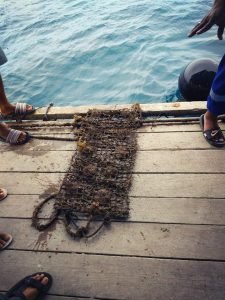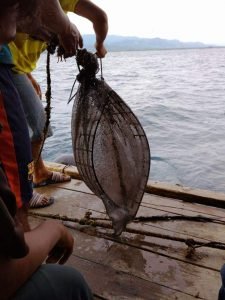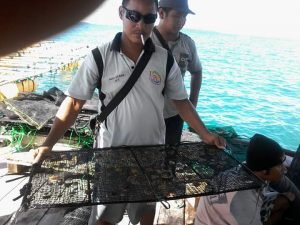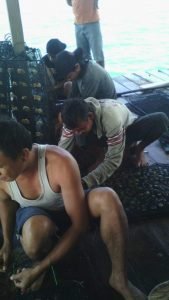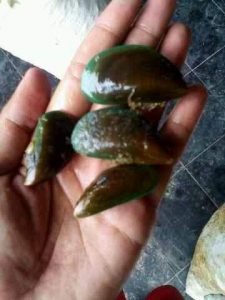TECHNIQUE OF GREEN SHELL CULTIVATION
TECHNIQUE OF GREEN SHELL CULTIVATION
One business opportunity that is quite attractive among the public is the cultivation of green mussels. Many people like to consume green mussels because the taste is quite delicious and the nutritional value is high. The nutritional content of green mussels includes water, protein, fat, carbohydrates and ash. The nutritional value of green mussels is equivalent to beef, chicken and chicken eggs.
Green mussels are animals that have two green shells and live in the sea. Green mussels are found in the depths of the sea between 1-7 meters. Indonesia is one of the potential green shellfish producing countries. The distribution of green mussels is almost evenly distributed across all beaches in Indonesia, especially the beaches on the island of Lombok. Green mussels breed rapidly in March to July.
Green mussel reproduction
Green mussels are included in the classification of ovipora animals which have many sperm and egg cells and are microscopic. The way to breed green mussels is by external fertilization, which is to excrete sperm cells and egg cells in the water and let them mix. The mixture will produce fertilization. In just 24 hours, the eggs will hatch and become larvae. Larvae will grow to spat until the age of 15-20 days. After that, they will grow into adult green mussels at the age of 5-6 months.
Location Cultivation Requirements
Because of the large population of green mussels in Indonesia, many people want to open a green mussel cultivation business. The technique of cultivating green mussels is quite easy. Cultivators simply provide a location that is quite protected from strong currents and does not have high salt content. The location must also have muddy and sandy bottom waters. This is to make it easier for green mussels to get nutrients and nutrients needed during breeding.
Make sure the selected location is free of toxic wastes such as copper, zinc, mercury, cadmium, tin and others. Also avoid locations near the river to avoid household waste such as detergent and bath soap. The waste can trigger the emergence of various bacteria such as Echericia coli, Salmonella and Shigella which can be dangerous for humans who consume green mussels. A good location is a location that has temperatures ranging from 27-37 degrees Celsius and the pH level is 6-8.
In collecting spat green mussels can be done by inserting the collector's rope. Collector ropes can be made from various simple materials such as coconut fibers, spinning fibers and polyethylene. Put the collector's rope in waters that have many green clam seeds. Beni will move and attach to the collector rope naturally. After that, the collector's rope can be transferred to the cultivation container. If there are no green clam seeds around the cultivation location, seed transplants can be done from other areas.
Cultivation Method
There are four ways to cultivate green mussels, namely stepping, stepping raft, floating raft and longline. Step-by-step raft method is a method commonly used by the community. This method is a combination of two ways of livestock, namely stepping and floating rafts. The trick is to plug bamboo into the bottom of the water. Make sure the location of the raft has been calculated based on the high and low water when it is high tide or low tide. This is important so that the raft does not experience drought. Then place the collector strap on the step raft. The recommended distance for each rope is one meter. In about 6 months, you can get around 20-25 kg for each rope.
Posted from my blog with SteemPress : http://sabatino.epizy.com/wp/2018/11/04/technique-of-green-shell-cultivation/
